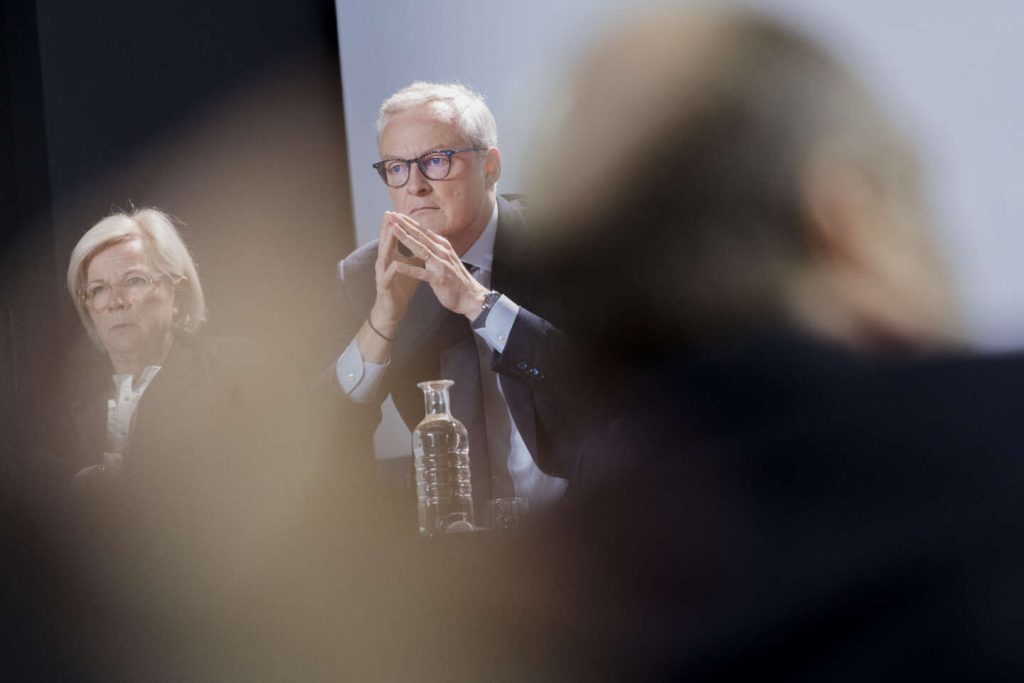The French Minister of Economy and Finance, Bruno Le Maire, is portrayed as an outsider in the political landscape, according to author Michel Houellebecq. In his latest novel, “Anéantir”, a character named Bruno Juge, based on Le Maire, is seen as competent and hardworking but lacking in warmth and empathy. Despite this, he is considered a potential successor to the president, though there are doubts about his likability. Le president himself is wary of Le Maire, even considering a return to power after five years.
Le Maire, who has been at Bercy for seven years, claims to not be thinking about the future. However, his latest book, “La Voie française”, released in March, is seen as a manifesto for 2027. The essay touches on various topics including economics, sovereignty, public finances, ecology, drug control, institutional reforms, secularism, and exercise of power. These reforms are seen as necessary to avoid electoral failure in 2027 and address France’s concerns about declining status.
Despite his claims of focusing on his ministerial role, Le Maire’s proposed reforms align with Macron’s policies centered on work and reforms to stimulate economic forces. He aims to shift the management of unemployment benefits from social partners to the government, reconsider the indexation of the minimum wage, look into capitalization for retirement funding due to demographic aging, refocus healthcare on vulnerable populations, and rethink the financing of the social welfare system through VAT instead of labor taxes. Some of these ideas have been previously discussed by Le Maire and are seen as an extension of Macron’s agenda.
Le Maire’s proposals are aimed at achieving full employment and addressing the challenges faced by the French welfare state. He emphasizes the need to modernize and adapt the system to current demographics and economic dynamics. By advocating for a shift towards a more protective state, he intends to create a more sustainable and equitable social welfare model. However, his plans may face challenges in implementation and acceptance, as they require significant changes to the existing system.
The discussion around Le Maire’s political future and potential presidential candidacy in 2027 raises questions about his leadership style and ability to connect with the electorate. Despite being viewed as competent and diligent, concerns about his likability and empathy could pose challenges in a political campaign. Le Maire’s positioning within the Macron administration and his alignment with the president’s policies indicate a continuation of the current government’s agenda, emphasizing economic growth and social reforms.
In conclusion, Bruno Le Maire’s role as Minister of Economy and Finance and his potential future ambitions are closely scrutinized in the context of French politics and societal changes. His proposed reforms and vision for France’s future reflect a desire for stability, modernization, and progress. However, the challenges of implementing these reforms and gaining public support remain significant, highlighting the complexities of governance in a rapidly changing world.


